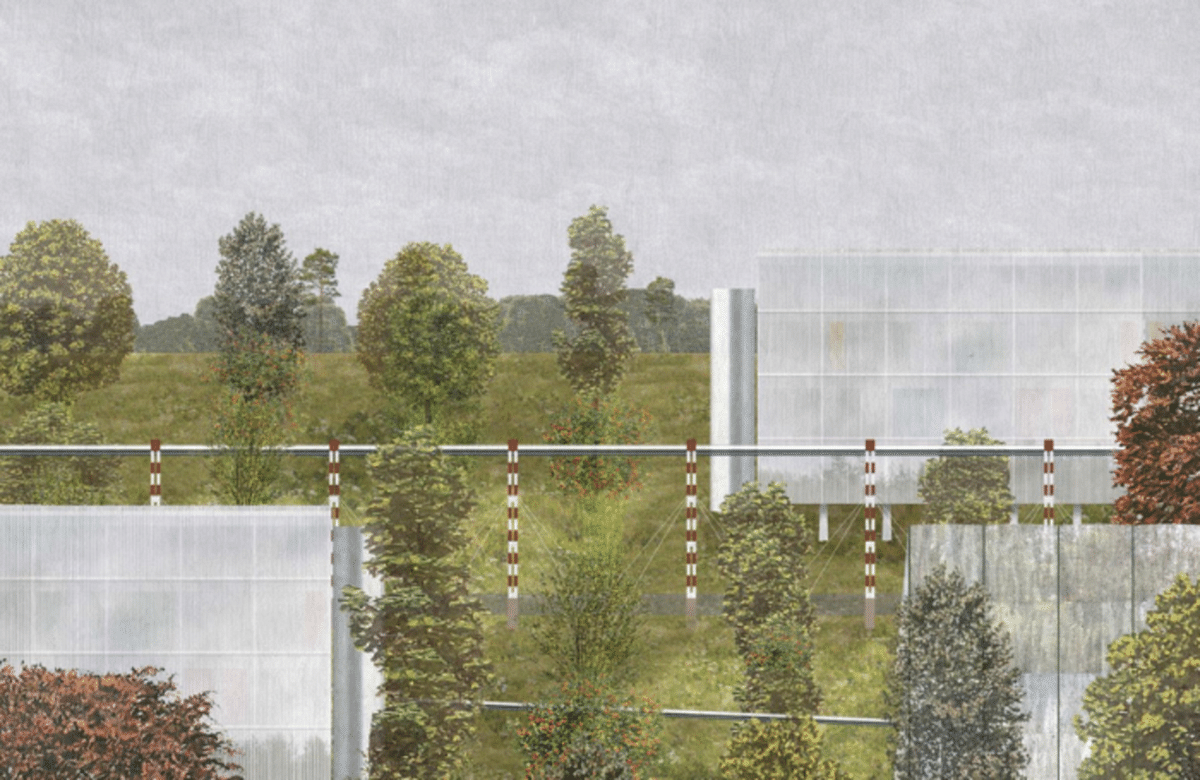
These select architecture students and educators earned top honors at the 2024 RIBA President's Medals
By Josh Niland|
Thursday, Dec 5, 2024
Related
The 2024 RIBA President’s Medals and Annie Spink Award winners have been announced as part of the year-end honors by the Royal Institute of British Architects (RIBA) for the 188th consecutive year.
Leading the field was the RIBA Silver Medal winner Joe Franklin, a Part 2 student at Kingston University. His project titled Ultra Town transforms an area planned for the HS2 high-speed rail into a thriving new town for 250,000 people located between Manchester and Birmingham and represents the first Silver Medal win for a student from his university.
RIBA says the 2024 awards program received 372 entries, the most in its history. Judges accordingly granted five commendations for the Silver and Bronze categories, up from the typical three that were awarded in previous years.
RIBA Silver Medal: 'Ultra Town' by Joe Franklin (Kingston University)
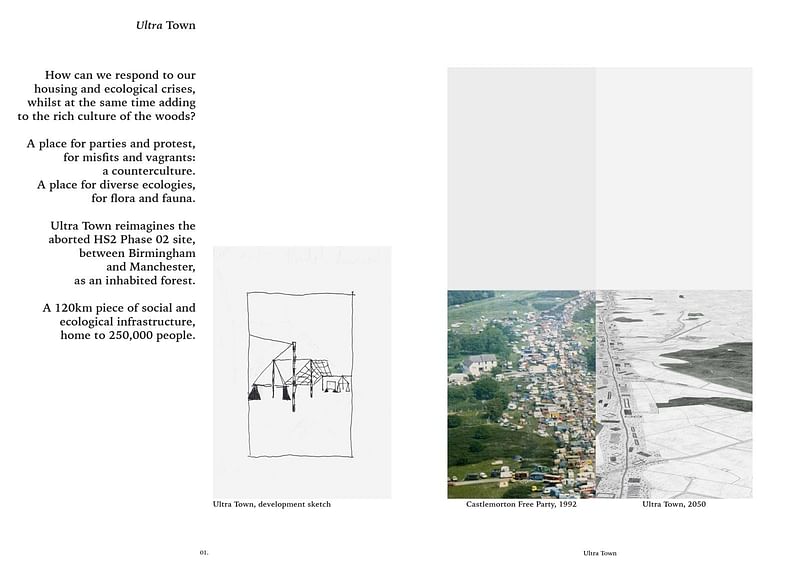
“It’s a real joy to receive this award, especially for such a quiet and, at times, deeply personal project. I would like to thank RIBA and the judges of the Silver Medal; it truly means a lot to have the work recognised in this way. I only hope that the award can go beyond its limitations as a personal achievement, to celebrate the endless support and encouragement from my tutors and friends at the Kingston School of Art," Franklin said.
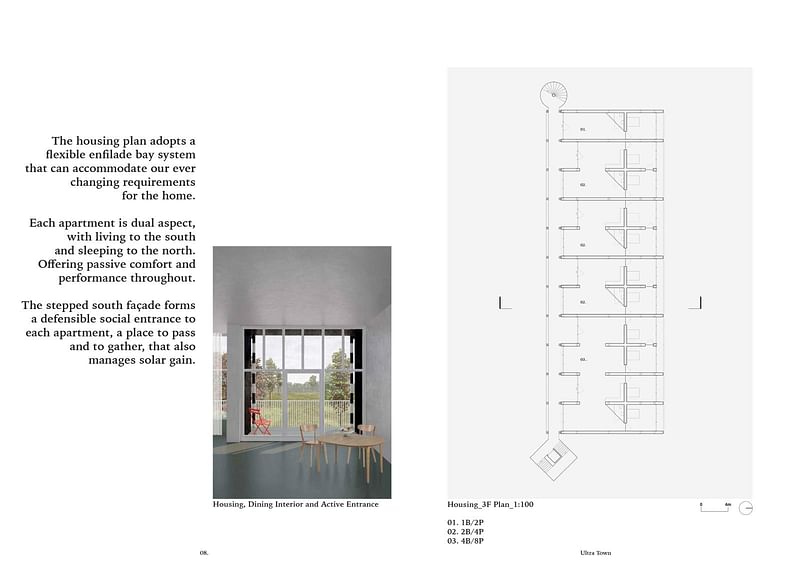
Project abstract: "'Ultra Town' reimagines the aborted HS2 Phase 02 site between Birmingham and Manchester as a forested new town, a 120km piece of social and ecological infrastructure that eventually becomes home to more than 250,000 people. The project is drawn over a period of 50 years and across a number of phases, from enabling services, to incorporating forms of industry, pieces of social infrastructure and housing; thus proposing a method of responsible development and new build construction embedded with cycles of support, maintenance and care. Drawing from my own experience of living in temporary, transient communities, the language of the proposal learns from the history of woodland as a space for protest and counterculture to propose an ultra-urban condition that responds to the current housing and ecological crises."
RIBA Bronze Medal: 'Forget me Not' by Victor Williams Salmeron (University of Kent)
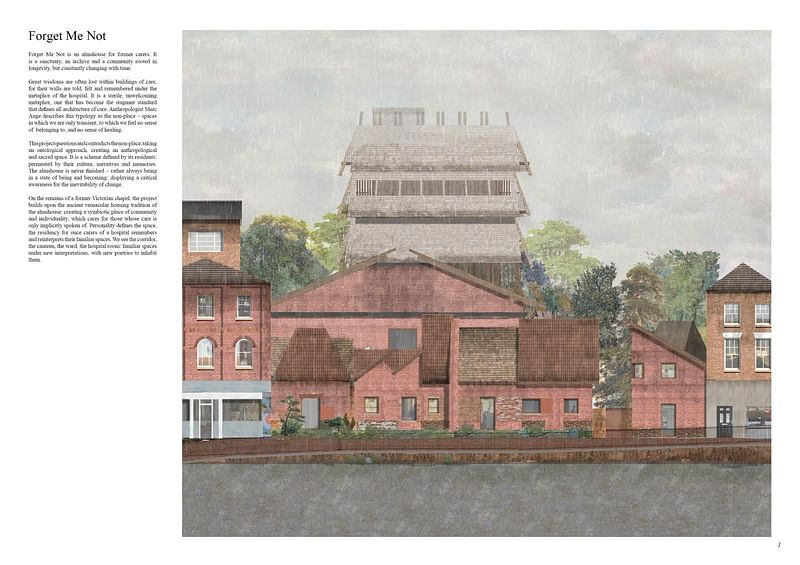
Following Franklin's was University of Kent Part 1 student Victor Williams Salmeron's RIBA Bronze Medal-winning project titled Forget Me Not, an almshouse designed for former caregivers located at the site of a Victorian chapel, which "questions the idea of the hospital or care building as a sterile, transient non-place through an ontological approach, drawing on ancient almshouse traditions."
Also from the 2024 pool, the sixth RIBA Award for Sustainable Design was awarded to Sasha Farnsworth of Coventry University for Womb Temple: Lunar Re-Birth at the Part 1 level and Nathalie Marj of the École Polytechnique Fédérale de Lausanne (EPFL) for Beirut’s Unbuildable Lots: Designing Non-sectarian Spaces at Part 2.
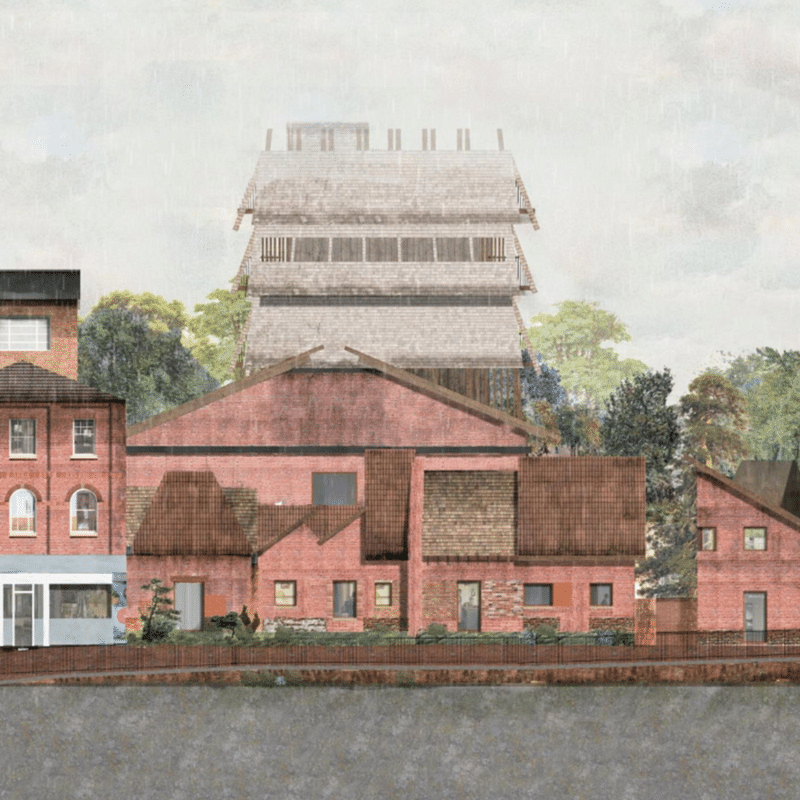
Project abstract: "'Forget Me Not' is an almshouse for former carers. It is a sanctuary, an archive and a community rooted in longevity, but constantly changing with time. Great wisdoms are often lost within buildings of care, for their walls are told, felt and remembered under the metaphor of the hospital. It is a sterile, unwelcoming metaphor, one that has become the stagnant standard defining today’s architecture of care. Anthropologist Marc Auge describes this typology as 'the non-place', spaces where we are only transient, and that fail to provide a sense of belonging or healing. This project questions and contradicts the non-place with an ontological approach by proposing an anthropological and sacred space permeated by culture, narratives and memory.
On the remains of a former Victorian chapel, the project builds upon ancient vernacular almshouse traditions, creating a symbiotic place of community and individuality for those whose care is only implicitly spoken of. As the residency for former carers of a hospital, the space is defined by the personality of its inhabitants in how it remembers and reinterprets their familiar spaces. We see the corridor, the canteen, the ward, and the hospital room under new interpretations, with new poetries to inhabit them."
RIBA Dissertation Medal: 'The Eel, the Dowry and the Seamstress' by Bianca Zucchelli (The Bartlett School of Architecture at University College London)
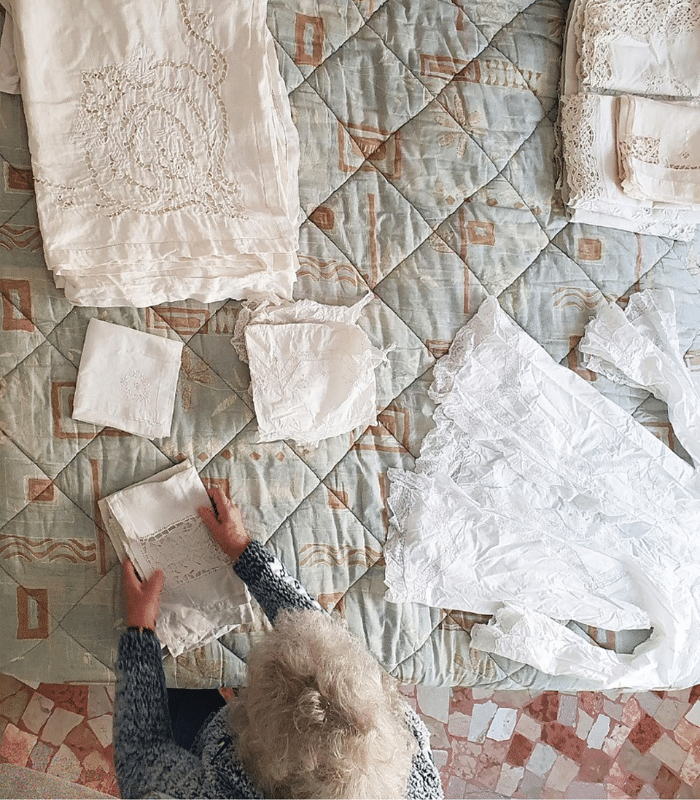
Adding to the field was the 2024 RIBA Dissertation Medal winner Bianca Zucchelli of University College London. Zucchelli said: "I am extremely honoured to receive this award and such recognition for a writing that is so dear to me and my family. I would like to thank the RIBA judging panel for recognising the value of my research in the untold stories of working women, and hope it will positively influence others to appreciate its importance in understanding nowadays’ world. I deeply thank my tutors, without whose knowledge and trust this writing would simply not exist, as well as my friends and family whose unconditional support has been invaluable every step of the way."
Serjeant Awards for Excellence in Drawing: 'Fabricated Identities: The Museum of Faith and Fashion' by Jaehyun Byeon (Cardiff University) and 'Mierceholts New National Timber Reserve' by Jack Oaten (Kingston University)
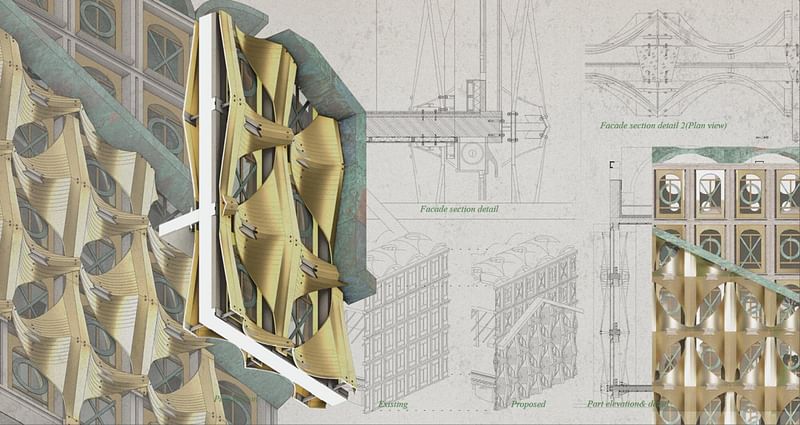
The 2024 Serjeant Awards for Excellence in Drawing were then granted to Jaehyun Byeon of Cardiff University for 'Fabricated Identities: The Museum of Faith and Fashion' and Jack Oaten of Kingston University for his work 'Mierceholts New National Timber Reserve.'

Finally, the 2024 RIBA Annie Spink Award for Excellence in Architectural Education was given to Professor Jane Anderson of Oxford Brookes University. The RIBA jury said; "Jane is praised for an innovative, community-minded pedagogical philosophy in which every first-year student starts with a community-oriented building project in the real world."
RIBA President Muyiwa Oki added: "I am delighted to see the highest ever number of entries for the President’s Medals, which were of such quality and diversity that the judges awarded additional commendations in each category. What unites the winning projects is a true marriage of creativity and community spirit, explored with great sensitivity and personal insight. For me, these projects show a real awareness of the importance of reuse, elevating people and places that have been overlooked, and the social responsibility of the architect. While these are weighty themes, the winners give me confidencein the next generation of architects and designers."

Share
0 Comments
Comment as :